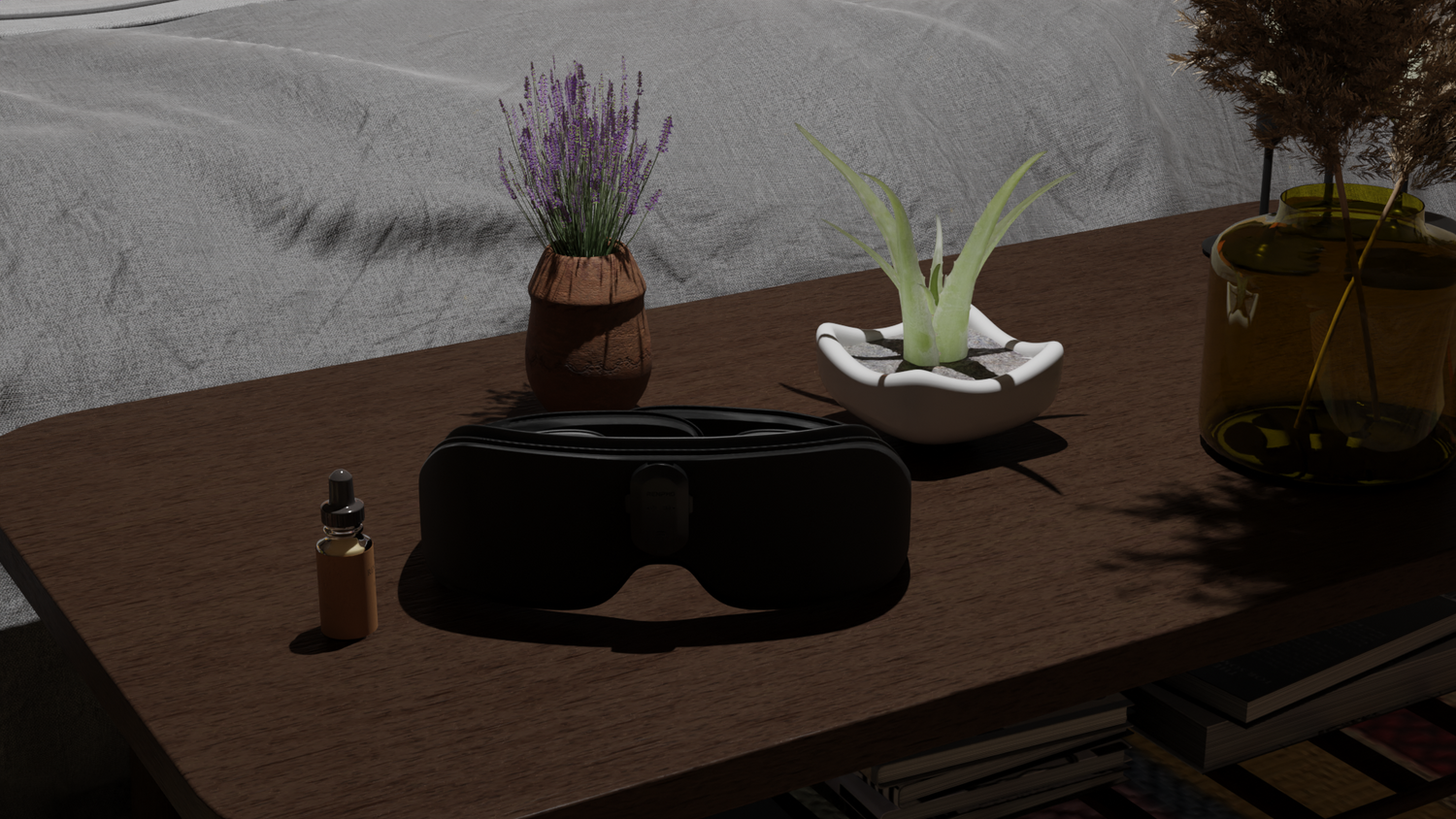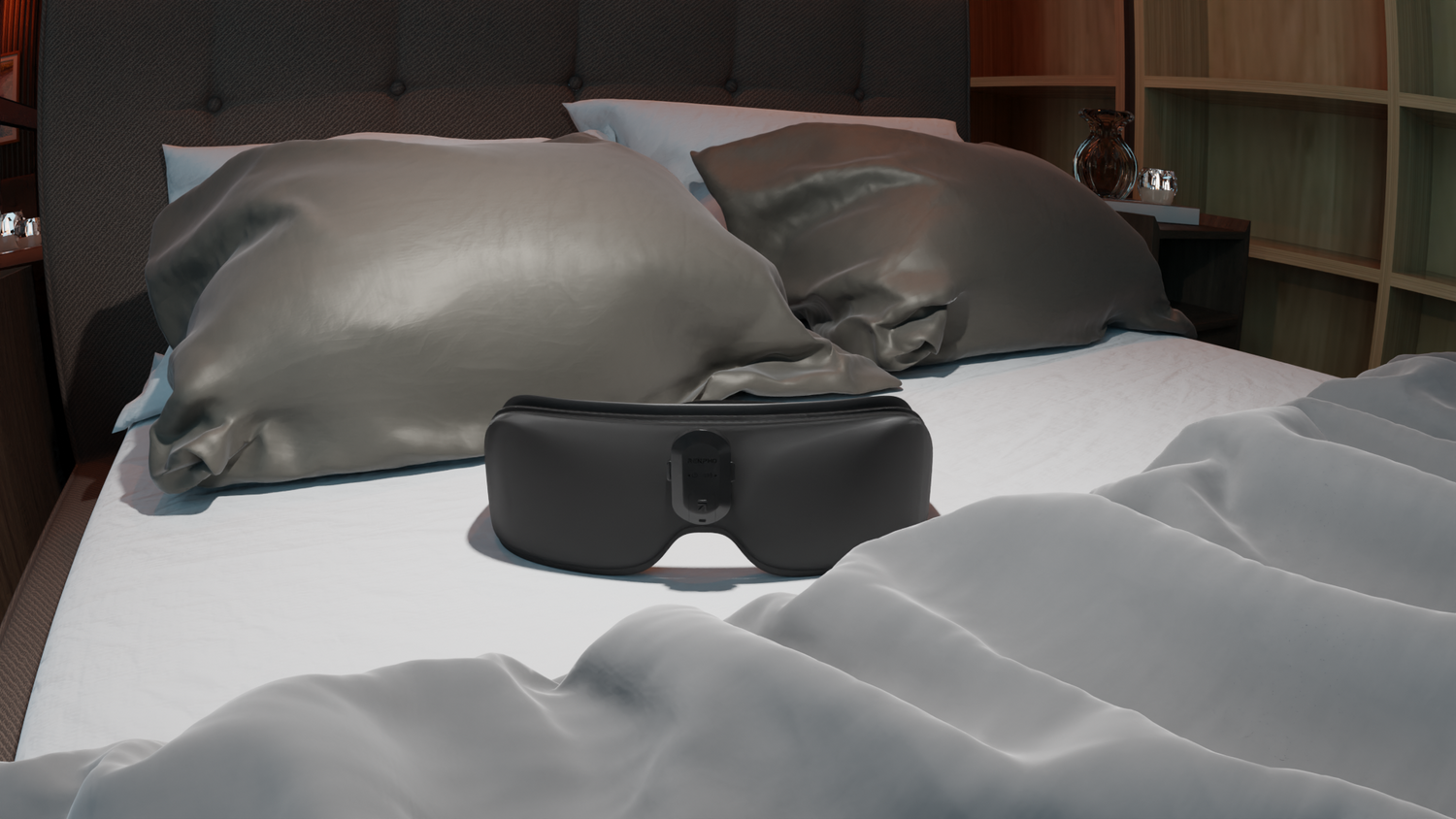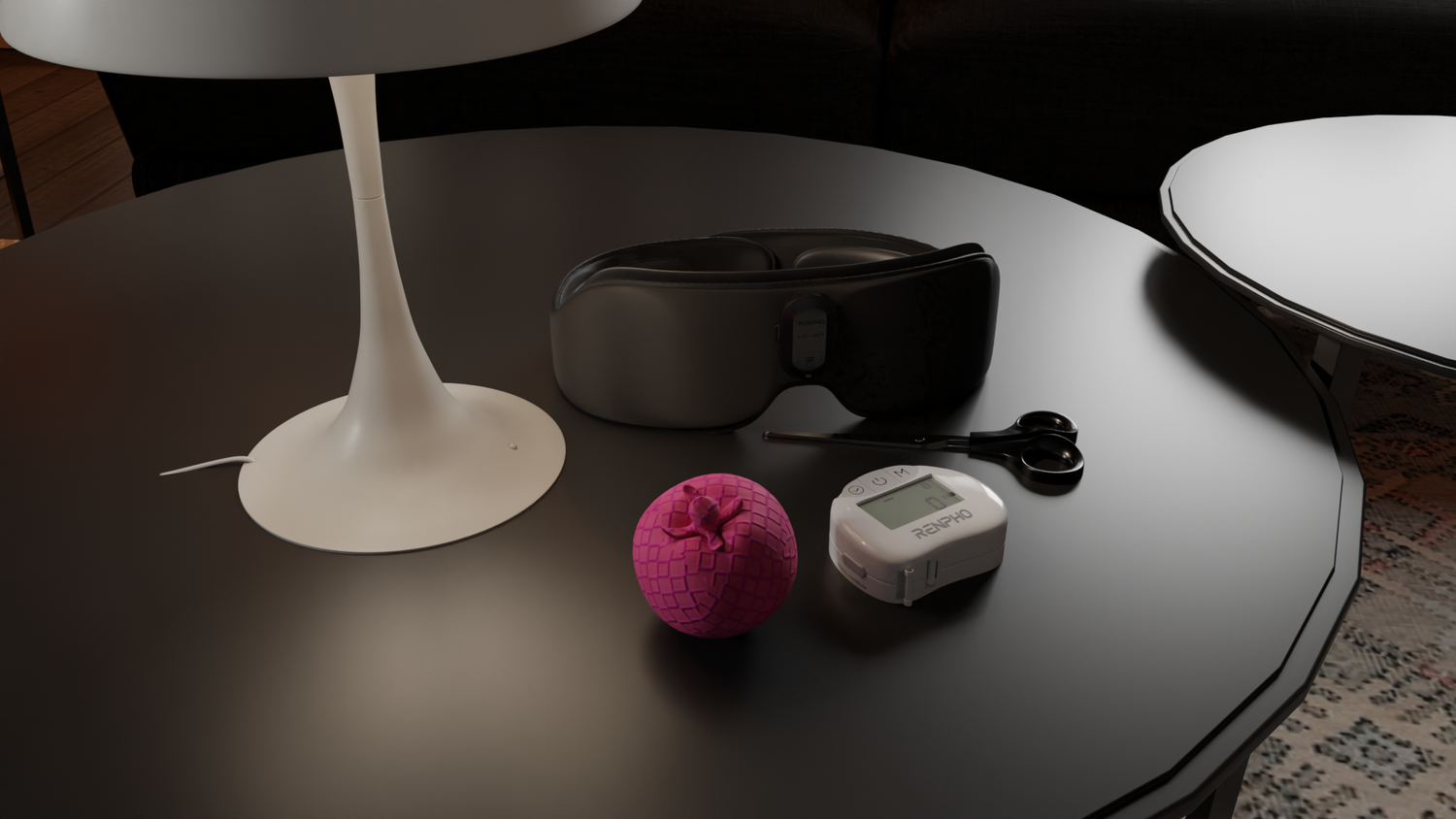Revitalize with Coffee Eye Mask and Say Goodbye to Dark Circles

Stay tuned to our latest news
If you have been struggling with pesky dark circles under your eyes, you might need something to revitalize your tired eyes and bid farewell to those stubborn shadows.
A coffee eye mask could be the answer you are looking for. Packed with the power of caffeine and antioxidants, it offers a simple, affordable, and natural alternative to combat those frustrating dark circles.
In this blog, we'll take a closer look at the benefits of coffee for your delicate under-eye area and guide you through the step-by-step process of creating your own rejuvenating coffee eye mask at home.
So, if you're ready to say goodbye to those under-eye shadows and hello to a more radiant, well-rested appearance, let's dive into the world of coffee-infused skincare and discover the wonders of this DIY eye mask.
What Are Dark Circles?

Dark circles are a common cosmetic concern for many people, often appearing as areas of discoloration or "bags" under the eyes. They can be caused by a variety of factors such as genetics, lack of sleep, stress, allergies, or even just the natural aging process. Understanding the underlying causes of dark circles is important in finding effective ways to minimize their appearance and improve the overall look of the skin around the eyes. In this article, we will explore the causes of dark circles, as well as some tips and treatments for reducing their visibility and achieving a more refreshed and youthful look.
What Causes Dark Circles?
Dark circles can be caused by various factors, which can be classified as intrinsic or extrinsic causes. Intrinsic factors are primarily related to genetic and anatomical factors. Some individuals naturally have thinner skin or a higher concentration of blood vessels under the eyes, making the blood vessels more visible and resulting in the appearance of dark circles.
Age is another factor, as the skin naturally becomes thinner and loses elasticity with aging, making the blood vessels under the eyes more apparent. Fatigue and lack of sleep can also contribute to dark circles. Insufficient sleep or poor quality of sleep can cause the skin to become dull and pale, making the underlying blood vessels more noticeable.
Allergies can play a role as well. Allergic reactions can cause inflammation and swelling around the eyes, leading to the formation of dark circles. Frequent itching and rubbing of the eyes due to allergies can further worsen the appearance of dark circles.
Excessive sun exposure is another common cause. The sun's harmful ultraviolet (UV) rays can stimulate the production of melanin, the pigment responsible for skin coloration. Overproduction of melanin in the under-eye area can result in dark circles.
Dehydration can also contribute to dark circles. When the skin under the eyes becomes dehydrated, it can accentuate the visibility of blood vessels, leading to the appearance of dark circles.
A poor diet can affect the overall health and appearance of the skin, including the delicate skin around the eyes, and contribute to the development of dark circles.
Habits such as smoking and excessive alcohol consumption can also negatively impact the skin's health and appearance. These habits can lead to poor circulation and the breakdown of collagen, making the blood vessels under the eyes more noticeable and contributing to dark circles.
Since there are multiple possible reasons behind dark circles, consulting with a healthcare professional or dermatologist can help determine the underlying cause specific to an individual and guide appropriate treatment options.
How to Get Rid of Dark Circles?
To address dark circles, some common approaches include ensuring adequate sleep to reduce dark circles caused by fatigue or lack of sleep. Topical treatments such as creams, serums, or gels containing ingredients like retinol, vitamin C, vitamin K, hyaluronic acid, or peptides can target pigmentation, strengthen the skin, and boost collagen production.
Applying cold compresses or cooled tea bags to the under-eye area can constrict blood vessels, reduce puffiness, and minimize the appearance of dark circles. If allergies contribute to your dark circles, managing allergies through medication, trigger avoidance, and allergy eye drops can provide relief.
Protecting the skin from the sun's harmful UV rays by wearing sunglasses, applying sunscreen, and using protective clothing can prevent further pigmentation. It's also important to stay hydrated by drinking enough water, as proper hydration can help minimize the appearance of dark circles.
Adopting a healthy lifestyle with a balanced diet rich in fruits, vegetables, and nutrients is beneficial for overall skin health. Avoiding smoking and excessive alcohol consumption can prevent skin damage that contributes to dark circles.
In some cases, dermatological procedures such as chemical peels, laser therapy, dermal fillers, or intense pulsed light (IPL) may be recommended for persistent or severe dark circles. However, consulting with a healthcare professional or dermatologist is key to determining the most suitable treatment options for your specific needs.
Is Coffee a Good Solution for Dark Circles?

Although there are numerous remedies and treatments that claim to help reduce the appearance of dark circles, one popular and accessible option is coffee. Many people believe that the caffeine and antioxidants found in it can help to constrict blood vessels, reduce inflammation, and stimulate blood flow, which may ultimately improve the appearance of dark circles.
However, it's important to evaluate the true effectiveness of coffee as a solution for dark circles and consider potential risks before incorporating it into a skincare routine.
What Are the Benefits of Coffee for Your Skin?
Coffee offers numerous benefits for skin health, thanks to its rich antioxidant properties. Antioxidants help in fighting free radicals, which can cause damage to the skin and lead to aging. Furthermore, coffee can reduce inflammation, which can help calm redness and puffiness in the skin. Moreover, caffeine aids in improving circulation, leading to a brighter and more even skin tone.
Beyond these benefits, coffee can aid in reducing the appearance of cellulite by dilating blood vessels and improving blood flow. This can result in a temporary tightening and smoothing effect on the skin, reducing the appearance of cellulite. In addition, the anti-inflammatory properties of caffeine can also help in reducing the appearance of dark circles and fine lines, making the skin look more rejuvenated and youthful.
Can Eye Masks Help with Dark Circles?

Eye masks can potentially help with dark circles, depending on the specific type and cause of the dark circles. They are designed to provide various benefits to the under-eye area, such as hydration, cooling, or the delivery of specific ingredients.
Certain eye masks are infused with moisturizing ingredients such as hyaluronic acid or glycerin, aiding in skin hydration. Through the provision of proper hydration, these masks can plump up the skin, making dark circles appear less prominent.
Eye masks that provide a cooling sensation can be advantageous for reducing dark circles caused by dilated blood vessels or fluid retention. The cooling effect helps constrict blood vessels and reduce puffiness, leading to a less noticeable appearance of dark circles.
Particular eye masks contain ingredients like vitamin C, vitamin K, caffeine, or peptides that have potential benefits for reducing dark circles. These ingredients may help brighten the skin, improve circulation, strengthen blood vessels, or reduce pigmentation.
However, it's important to keep in mind that the effectiveness of eye masks for dark circles can vary depending on individual factors and the underlying cause of the dark circles.
As such, if you want the best results, it is recommended to combine the use of eye masks with other strategies, such as ensuring adequate sleep, maintaining a healthy lifestyle, and using targeted skincare products.
How to Make a Coffee Eye Mask?
To make a coffee eye mask, start by mixing 1/4 cup of ground coffee beans with 2 tablespoons of rosehip oil, 1 tablespoon of cacao butter, and 1 tablespoon of beeswax pellets in a heatproof bowl. The ground coffee beans will infuse the oil with their beneficial properties to reduce puffiness and dark circles around the eyes.
Next, heat the mixture in a double boiler or microwave until the cacao butter and beeswax pellets are completely melted. Stir the mixture well to ensure even distribution of the coffee grounds.
Once the mixture is melted and well combined, carefully pour it into small containers or jars. Allow the mixture to cool and firm up at room temperature or in the refrigerator.
To use the coffee eye mask, simply apply a small amount of the mixture to the under-eye area, and gently massage it into the skin. Leave the mask on for 10-15 minutes, then gently remove with a damp cloth.
Takeaway
A coffee eye mask can be a beneficial and natural solution for reducing the appearance of dark circles under the eyes. Dark circles can be caused by various factors such as genetics, lack of sleep, stress, allergies, aging, sun exposure, dehydration, poor diet, smoking, and excessive alcohol consumption.
While there are multiple approaches to treating them, incorporating a coffee eye mask into your skincare routine can be a wonderful solution as it offers several benefits. For starters, coffee contains caffeine and antioxidants, which can help constrict blood vessels, reduce inflammation, stimulate blood flow, and improve circulation. These properties can lead to a brighter and more even skin tone, as well as reduce the appearance of puffiness, fine lines, and dark circles.
So, when making a coffee eye mask at home, you can combine ground coffee beans with ingredients like rosehip oil, cacao butter, and beeswax pellets. The mixture should be heated and melted before being applied to the under-eye area. After leaving the mask on for 10-15 minutes, it can be gently removed with a damp cloth.
However, it's important to note that the effectiveness of coffee eye masks may vary depending on individual factors and the underlying cause of dark circles. It's recommended to combine the use of eye masks with other strategies such as adequate sleep, a healthy lifestyle, and targeted skincare products for the best results.
Consulting with a healthcare professional or dermatologist can help determine the underlying cause of dark circles and guide appropriate treatment options tailored to your specific needs.
Renpho Health Tips
-

Sound Bath Therapy: Harnessing Sound Frequencies for Wellness
February 13, 2024
Read more >
-

Protecting Your Eyes: Do Sleep Masks Really Cause Dry Eyes?
February 13, 2024
Read more >
-

How to Love Yourself in the Age of Filters: A Guide to Body Positivity and Social Media
February 12, 2024
Read more >
-

3 Possible Reasons Why Your Sleep Mask Keeps Falling Off
February 8, 2024
Read more >
-

DIY Sleep Solutions: How to Make a Sleep Mask for a Good Night's Sleep
February 8, 2024
Read more >




